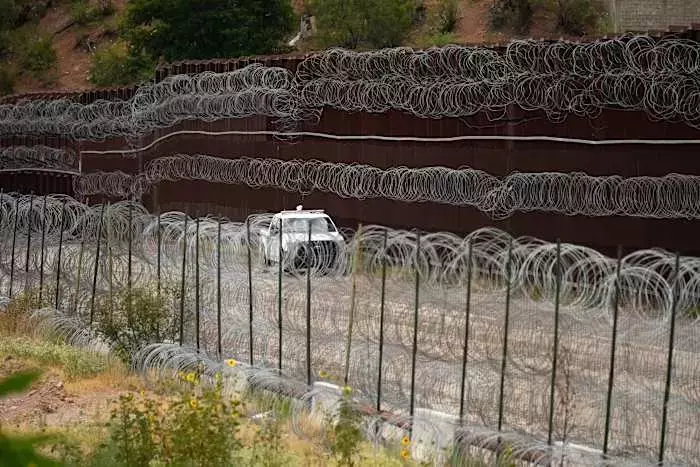In a significant development, Houston construction company CEO Stan Marek has emerged as a vocal advocate for alternative approaches to immigration, firmly opposing President-elect Donald Trump's proposed mass deportation plans. Marek's stance highlights the crucial role that migrants play in various industries and emphasizes the need for comprehensive solutions.
"Stan Marek's Plea for Immigration Reform Amidst Trump's Plans"
Immigration Concerns and the Texas Context
President-elect Trump's plans for a mass deportation have sent shockwaves across the country, with Texas being no exception. As Marek writes in a letter shared with KPRC 2, "President-elect Trump’s plans for a mass deportation have raised concerns all over the country, especially here in Texas." This sentiment is echoed by many, as the potential disruption to communities and industries is a matter of great concern. Marek points out that there has not been a major change in our immigration law since President Reagan's Immigration Reform Act of 1986, highlighting the need for a more measured and thoughtful approach.Texas Land Commissioner Dawn Buckingham's announcement last week about identifying property for the Trump administration further underscores the gravity of the situation. The reality is that mass deportations are not only morally complex but also financially burdensome. Trump's promise of the "largest deportation operation in the history of our country" comes with a hefty price tag that could run into the billions.The Importance of Migrants in Industries
In a phone interview with KPRC 2's Rilwan Balogun, Marek called migrants "essential" to industries. He emphasizes that these individuals have put down roots, bought houses, and are raising their families. Their American-born kids are an important part of building the country's future workforce. Marek highlights the billions that have been spent on educating these kids and the senselessness of having them worry about being separated from their parents.For example, consider a construction company like Marek Construction. The diverse workforce brought in by migrants has contributed to the growth and success of the business. Their skills and hard work have been instrumental in completing projects and meeting deadlines. Without this workforce, the construction industry would face significant challenges.Proposed Solutions for Law-Abiding Migrants
Marek offers several options for solutions while advocating for securing the border. He believes that the first step should be to identify undocumented migrants with criminal records such as gang members. This targeted approach ensures that public safety is not compromised.For law-abiding migrants, Marek suggests a "no-cost approach" that includes identifying those who have been here over five years and can pass a background check. Using facial recognition or digital fingerprints can provide them with a tamper-proof ID, ensuring their identity and legal status. They would also be required to pay a fine and a registration fee, similar to what Dreamers and Visa workers currently do.Moreover, these migrants would have to work for an employer who pays and matches payroll taxes, ensuring their contribution to the economy. This approach gives them guest worker status only and is not a path to citizenship, but it provides a legal framework for their presence in the country.Marek believes that comprehensive immigration reform should be bipartisan. He hopes that the President-elect uses this as an opportunity to work with Congress to pass sensible immigration reform that reflects the wishes of the majority of Americans. By finding common ground and starting with the things they agree on, a more sustainable and inclusive immigration system can be achieved.In conclusion, Stan Marek's call for immigration solutions is a timely and important one. It highlights the need to balance national security with the economic and social contributions of migrants. By exploring different approaches and working together, a more just and effective immigration system can be built. You May Like

